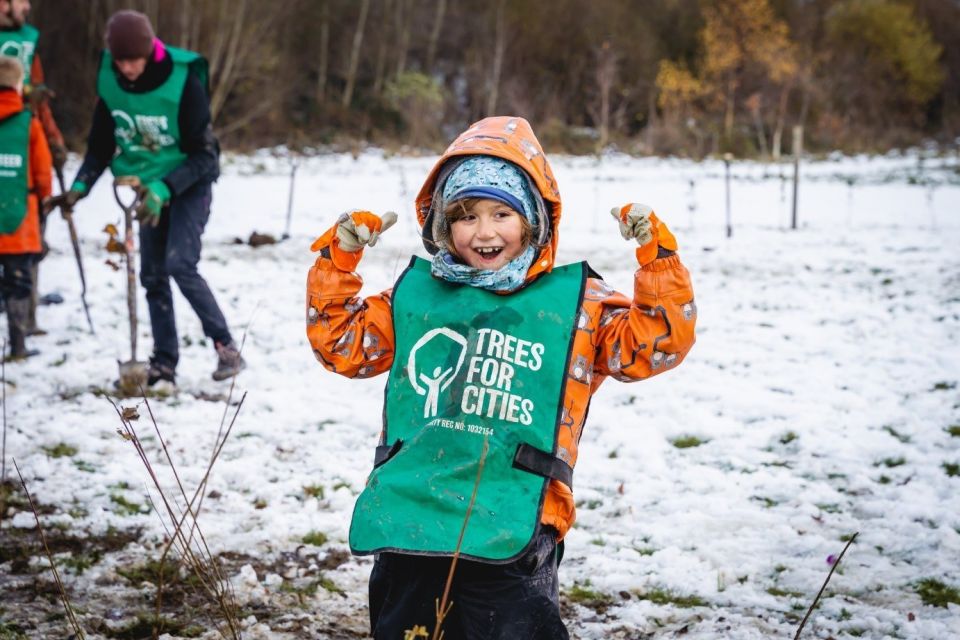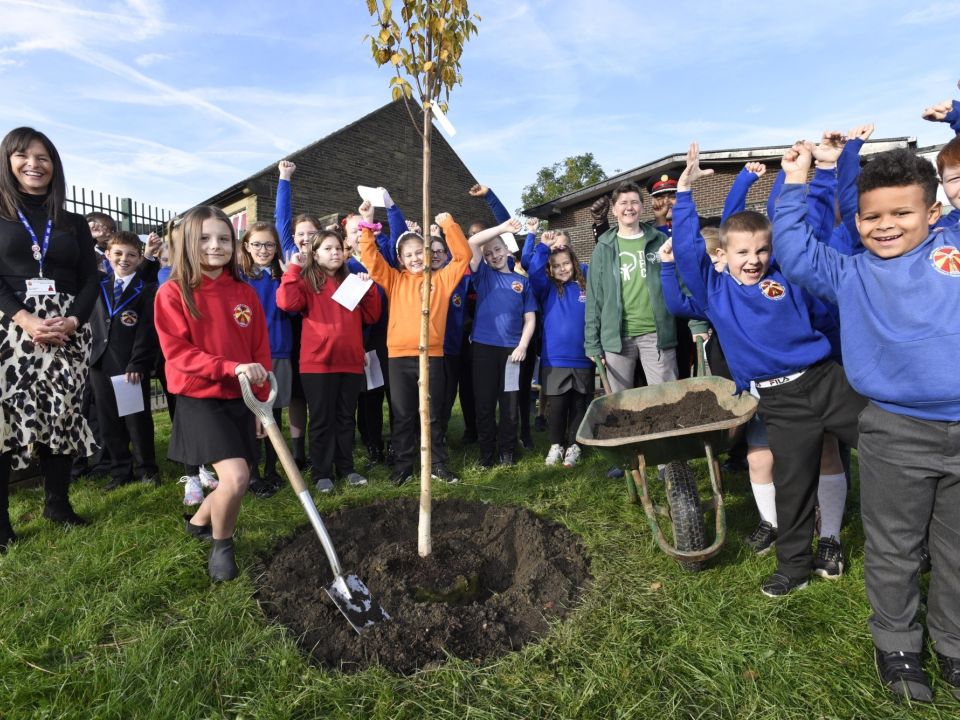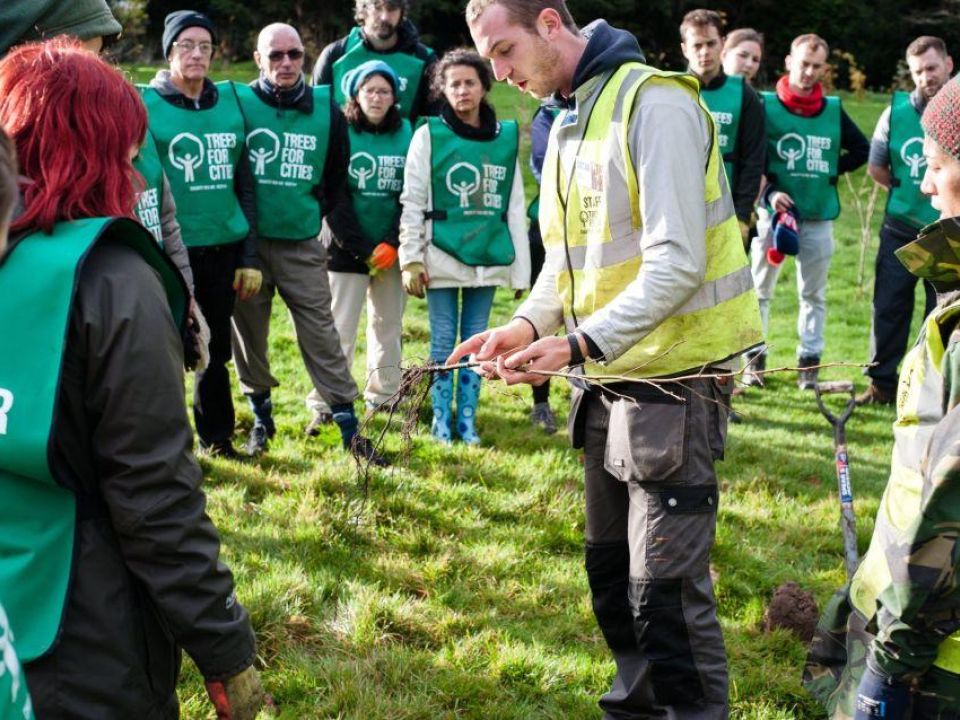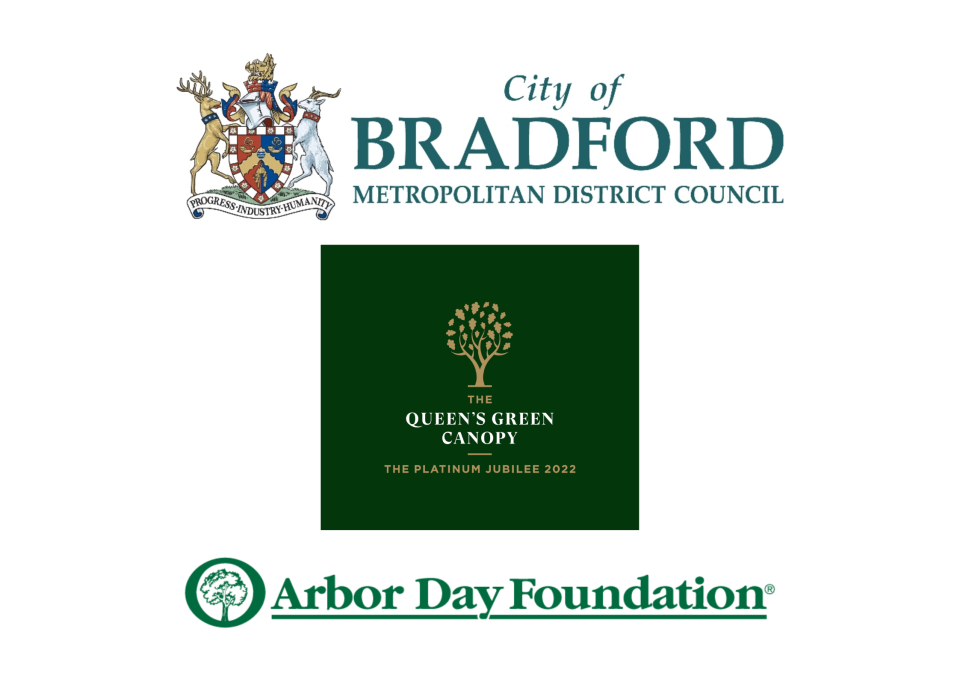Bradford Initiatives
Climate change is a growing threat to the planet and people. Many councils, including The City of Bradford Metropolitan District Council, have now declared a climate emergency in order to take action and to reduce carbon emissions to net-zero by 2038 to help reduce environmental threats. Planting trees is a major factor in tackling climate change – a single tree can absorb 22kg of carbon dioxide per year and 100 square metres of woodland can store nearly four tonnes.
As a Tree City of the World, an initiative led by Trees for Cities here in the UK, Bradford Council is aware of the significant value of trees and woodland to the environment and has partnered with Trees for Cities to plant a tree for every primary aged school child in the district over the next two years.
Tree for Every Child
Between 2021-2023, we helped to plant a tree for every primary-aged school child in the district. That’s over 55,000 new trees planted across 90 primary schools in Bradford and the creation of four new children's woodlands within easy reach of schools and urban communities!
Tree for Every Child helped people learn more about the importance of trees, their benefits and maintenance, and included a number of interactive workshops about planting, watering and pruning. This was a match-funded partnership project which engaged teachers, pupils and communities with tree planting locally and on their very own school grounds. The council and their partners covered the cost of planting and Trees for Cities took care of the cost of the trees that were planted.

Trees have multiple benefits, enhancing the landscape and giving people a sense of peace and wellbeing, as well as the role they play in absorbing carbon.
Councillor Sarah Ferriby, Portfolio Holder for Healthy People and Places
IMPACT
Native trees and hedgerows were planted in partnership with Bradford Council and local delivery partners YORGreencic, BEAT, BEES and Fruit Works, to bring a variety of benefits to Bradford. These new urban trees will provide shade, flood mitigation, increase biodiversity, produce fruit for both humans and wildlife, screen against pollution, and contribute to better mental health and wellbeing.
Discover more about our work in Bradford
-

Generations Growing Together in Keighley
30 April 2025
In Keighley, we've been working with local groups of all ages to co-design and plant a woodland - not just to grow trees, but to grow a stronger community.
-

Greening up Bradford
11 July 2024
We've supported the planting of 60,000 trees in Bradford and with our ongoing Trees for Climate Action project we continue to support local residents to green up their communities!
-

Our Climate Action Project for Young People in Bradford and Glasgow!
14 November 2022
Trees for Climate Action will bring generations together by connecting young people in Bradford and Glasgow with experienced professionals working in the environmental sector.
FUNDERS

